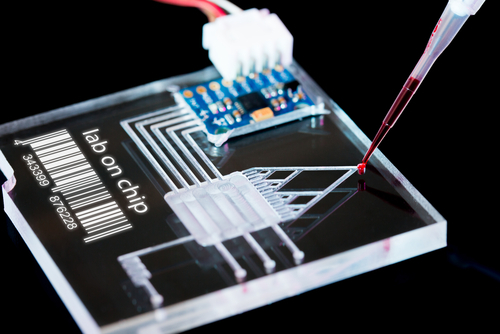Lab-on-a-chip technology can improve chronic disease diagnoses
IANS May 29, 2018
Researchers have developed a breakthrough lab-on-a-chip technology that reveals how human cells communicate, opening path to new treatments for cancer and autoimmune disorders.

The researchers built a miniature optofluidic biosensor that allows scientists to isolate single cells, analyse them in real time over at least 12 hours and observe their complex signalling behaviour without disturbing their environment. Single cell analysis holds great promise for developing new treatments for diseases but a lack of effective analysis technologies was holding back research in the field, said Arnan Mitchell, Professor at the RMIT University in Australia's Melbourne.
The new biosensor is "a powerful new tool that will give us a deeper fundamental understanding of cell communication and behaviour. These insights will open the way to develop radically new methods for diagnosing and treating disease", Mitchell said. Human cells communicate that something is wrong in complex and dynamic ways, producing various chemical substances that signal to other cells what they need to do.
Understanding how individual cells interact and communicate is critical to developing new therapies for serious diseases, to better harness the power of the body's own immune system or precisely target defective cells, the researchers said. For the study, published in the journal Small, the team demonstrated how the technology can be used to examine the secretion of cytokines from single lymphoma cells.
Cytokines are small proteins produced by a broad range of cells to communicate to other cells, and they are known to play an important role in responses to infection, immune disorders, inflammation, sepsis and cancer. The study found the lymphoma cells produced cytokine in different ways, unique to each cell, enabling researchers to determine each cell's "secretion fingerprints". "If we can build up a clear picture of this behaviour, this would help us sort good cells from bad and enable us to one day develop treatments that precisely target just those bad cells," Mitchell said.
-
Exclusive Write-ups & Webinars by KOLs
-
Daily Quiz by specialty
-
Paid Market Research Surveys
-
Case discussions, News & Journals' summaries